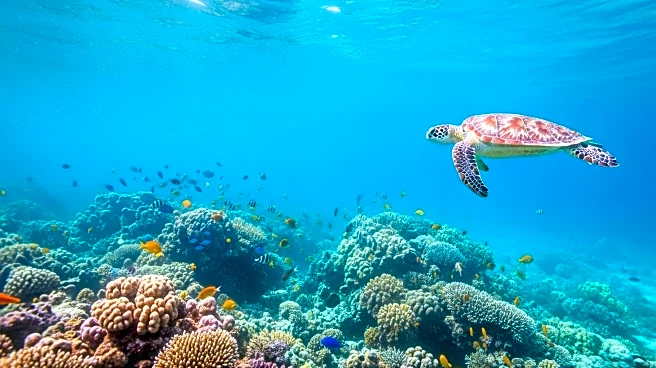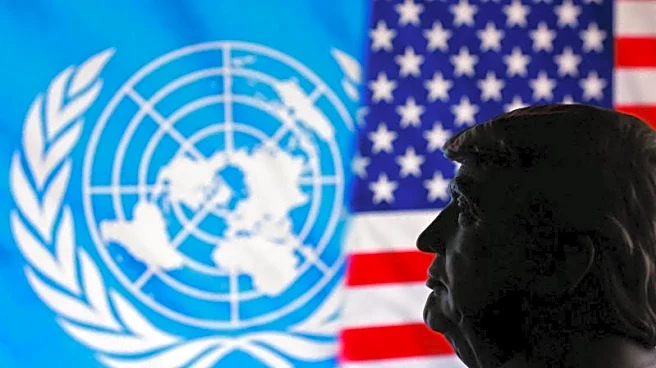What's Happening?
A multinational treaty aimed at protecting the world's oceans is set to become law in January 2026, following the ratification by Morocco and Sierra Leone. This treaty, endorsed by the United Nations, seeks to safeguard marine biodiversity in international waters, which constitute about 60% of the oceans. The treaty establishes binding rules for the conservation and sustainable use of marine resources, addressing threats such as pollution, overfishing, and deep-sea mining. Environmentalists emphasize the importance of protecting these ecosystems, which are vital for oxygen production and climate change mitigation. The treaty also includes provisions for sharing benefits from marine genetic resources, a point of contention in negotiations, particularly for developing countries lacking research funding.
Why It's Important?
The treaty's enactment is a significant step towards global ocean conservation, potentially transforming how marine resources are managed. It aims to protect areas that are crucial for biodiversity and climate regulation, offering a legal framework to combat environmental threats. Developing countries stand to benefit from the treaty's provisions on genetic resource sharing, potentially opening new markets in pharmaceuticals and cosmetics. However, the treaty faces opposition from major maritime powers like Russia and the United States, which could impact its global effectiveness. The treaty's success depends on widespread ratification and cooperation among nations, highlighting the geopolitical complexities of environmental agreements.
What's Next?
Once the treaty becomes law, a decision-making body will coordinate with existing regional and global organizations to implement its provisions. This includes working with fisheries bodies and the International Seabed Authority to regulate deep-sea mining. The establishment of protected marine areas is expected by late 2028 or 2029. Efforts to achieve universal ratification continue, with conservationists urging more countries to join. The treaty's implementation will require balancing environmental protection with economic interests, particularly in resource-rich areas. The stance of major powers like the United States and Russia will be crucial in shaping the treaty's future impact.
Beyond the Headlines
The treaty's focus on marine genetic resources highlights the intersection of environmental conservation and economic interests. Developing countries' push for benefit-sharing rights reflects broader issues of equity in global resource management. The treaty could set a precedent for future agreements on biodiversity and climate change, influencing international policy frameworks. The resistance from industrial powers underscores the challenges of aligning environmental goals with national interests, a recurring theme in global environmental negotiations.











